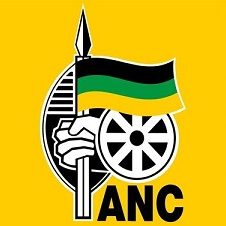This year marks 51 years since the first Consultative Conference of the ANC that took place in Morogoro, Tanzania. The Morogoro conference marked the advent of self-correction in the Congress Movement, having taken place at the epilogue of the most challenging decade for all South African liberation movements. This was the first gathering of the ANC to be held outside the country after it was banned by the Apartheid regime and it was at this gathering that the ANC adopted its first “Strategy and Tactics” document.
The Morogoro Consultative Conference, as history records, was an inevitable turning point, prompted by the deep crisis, accusations of an out-of-touch leadership, careerism, and corruption among senior MK leaders in charge of what was termed a “moribund and ill-equipped” military wing.
Today, the ANC as a leader of society has its leadership appropriating struggles of the dejected masses for their personal gain. The leadership, in their comfort, further conferred the scourge of corruption to ordinary members of the ANC; the ordinary pariah, who goes to bed on an empty stomach, with a vote.
One would, arguably, prelude that the challenges facing the ANC which we aptly articulate are natural consequences of migrating a liberation movement into a political party.
Have we, then, defined the ANC beyond being a liberation movement?
What we are today familiar with is a Congress Movement that no longer roars with the nation’s pulse. There is an unattended evident notion of resolutions that continue to be adopted at conferences being revolutionary in character and become a responsibility of an organisation that is no longer revolutionary in character. Conceivably, the ‘Cadre’ at the helm is not equal to the task. Those entrusted with power, do not reverberate to Pixley Ka Seme’s vision. Instead, they are proponents of the continued decay in our movement.
Cde Paul Mashatile, at the Gauteng Provincial Policy Conference held at St George’s Hotel in June 2017, contended the following: “The ANC survived not only to wage the struggle that culminated into the democratic breakthrough of 1994 but also to develop and implement some of the most progressive policies that have changed and continue to change the lives of our people for the better. We survived because we listened. We survived because we were not in denial and we survived because women and men of the time put the interest of our organization above their own. We also survived because we adhered to time-tested values of humility, selflessness, moral uprightness, and service to the people.”
Perhaps, for the ANC to define and adopt another character outside elective conference resolutions, a Morogoro magnitude of a meeting would have to be held. A meeting that would question the character of the cadre equal to the task; a cadre with an impending understanding of what The ANC’s Strategy and Tactics document of 1969 scrambled: In our country – more than in any other part of the oppressed world – it is inconceivable for liberation to have meaning without a return of the wealth of the land to the people as a whole. It is therefore a fundamental feature of our strategy that victory must embrace more than formal political democracy. To allow the existing economic forces to retain their interests intact is to feed the root of racial supremacy and does not represent even the shadow of liberation.
The cadre must find it incomprehensible to denote economic advancements that leave the majority of our people behind; with a deeply entrenched sense of accountability.
The First National Consultative Conference (Morogoro) made the following analysis, and the conclusive statement:
‘Today most of the wealth of South Africa is flowing into the coffers of a few in the country and others in foreign lands. In addition, the white minority as a group has over the years enjoyed a complete monopoly of economic rights, privileges, and opportunities. an ANC government shall restore the wealth of our country, the heritage of all South Africans to the people as a whole. The mineral wealth beneath the soil, the banks and monopoly industry shall be transferred to the ownership of the people as a whole’,
51 years later, and having governed for over 26 years uninterrupted, the above mentioned is still intact, in the hands of the settler-colonizer with the aid of the ‘Cadre’.
In his closing remarks at the Morogoro Conference, the then President of the ANC, Cde Oliver Tambo, though he has been quoted by the same enemy-agents he cautioned delegates against, had this to say about decadence and anarchy within our movement:
“(Delegates must) wage a relentless war against disrupters and defend the ANC against provocateurs and enemy agents. Defend the revolution against enemy propaganda, whatever form it takes. Be vigilant comrades. The enemy is vigilant. Beware of the wedge-driver, the man who creeps from ear to ear, carrying a bag full of wedges, driving them in between you and the next man, between a group and another, a man who goes round creating splits and divisions. Beware of the wedge-driver, comrades. Watch his poisonous tongue”.
In the battle for the soul of the ANC, to paraphrase ANC KZN PS, the question still stands: Have we not, during this period of a sustained organizational decline and decay, also had elected into positions of responsibilities those who were meant to be members only?
In this issue
In this month’s issue, we reflect on the 1969 Morogoro Conference of the ANC and what it meant for the ANC as a liberation movement; furthermore, we remember the compassion of the people of Tanzania, whom we can never remove from the fabric of South Africa’s fight for liberation.
The reflection happens at a time where the global pandemic has laid bare the dehumanizing poverty the majority of the people of South Africa continue to face; it has laid bare the shortcomings of the ANC, and its integrity thereof.
Comrade Vusumuzi Zamacingwane Mchunu, former RS of SASCO Greater Johannesburg in his reflection of the Morogoro Conference, dissects. The Politics, The Art and the Militancy of the Liberation Movement. He argues that even though the consultative conference reaffirmed the aspirations of the 1955 Congress of the People’s adoption of the Freedom Charter, particularly on the inclusion and influence of non-racial politics; the African Nationalist ideological posture identified that the main content that was at the core of the struggle was the national liberation of the majority land disposed of, political and economically marginalized, and the oppressed group- the African people.
Comrade Joel Netshitenzhe whom I’ve grown to know as Peter Mayibuye, Member of the National Executive Committee of the ANC, in his reflection, speaks about the Impact of the Balance of Forces on the Cause of Social Transformation. He cements that in both the 1969 Morogoro Strategy and Tactics document and the 1979 Green Book, there were hints about the movement towards a non-exploitative society. Morogoro argued that the doubly-oppressed and doubly-exploited working class constitutes a distinct and reinforcing layer of our liberation and Socialism and does not stand in conflict with the national interest. Similarly, the Green Book called for the liquidation of national oppression and economic exploitation in an uninterrupted advance.
Comrade Lindokuhle Xulu, a Fees Must Fall activist, speaks about Free Education being a legitimate call that must be defended till its full realization in post-apartheid South Africa, as a component of the economic freedom declared by the Congress Youth League.
To this end, the ANC honored two outstanding members of our revolutionary movement and society, Comrade Parks Tau and Comrade Amos Masondo, in celebrating 20 years of democracy in Local Government; the nerve center of service delivery, of socio-economic development, and of driving our efforts to build a truly democratic, integrated, prosperous, non-sexist and non-racial society as Chairman Geoff Makhubo revers. Moreover, Cde Thabo Manyoni speaks of the leadership of the two comrades as grounded on respecting the very communities that gave them the platform to lead. He cements their focus being on the practice of handling matters that seemed complex and their humility in navigating all matters political and in governance.
Malibongwe

